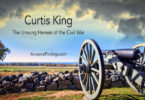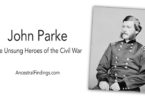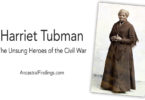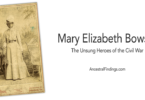Robert Smalls was born April 5, 1839, in Beaufort, South Carolina to Lydia Polite and Henry McKee. Lydia was Henry’s slave, and their son Robert was born into slavery. Lydia was a slave in the house at the time of Robert’s birth but grew up as a slave in the fields. Because Robert was given preferential treatment over the other slaves by his master/father, Lydia was concerned he would grow up not understanding the plight of other slaves. Therefore, she requested he be made to work in the fields and witness other slaves being whipped.
Robert was hired out as a laborer when he was 12, again at the request of his mother, Lydia. He earned a dollar a week for himself, with the remainder of any other money he earned going to his master/father. He worked in a hotel, then as a lamplighter, as a longshoreman, a rigger, a sail maker, and a wheelman on a boat. He eventually became a pilot for a boat, though slaves were not officially given that title at the time.
He married Hannah Jones when he was 17. Hannah was an enslaved woman working as a hotel maid and was five years older than him, with two daughters already. Robert and Hannah eventually had two daughters and a son together. Their son died at two years old, while their younger daughter married but had no children and lived to be 57, and their oldest daughter married, had nine children, and lived to be 101.
Robert wanted to purchase the freedom of his family himself by buying them, but the price for his wife and children was $800, and he only had $100 saved. Knowing it would likely take him decades to save up enough to free them, he devised a plan for them to escape slavery.
When the Civil War began, Robert was assigned to pilot the CSS Planter, a Confederate ship with light arms. The Planter was to deliver mail, troops, and supplies, to lay mines, and to survey waterways. While piloting the Planter from Florida to South Carolina several times, Robert noticed Union ships in the harbor near Charleston. He saw this as an opportunity to escape with his family.
In May of 1862, the three white officers on the ship disembarked to spend the night ashore, leaving the slaves on board as was their usual way of doing things, as they trusted the slaves. After they left, Robert, along with other enslaved shipmen on the Planter with him, sailed the Planter to a wharf up shore, with Robert dressed in the Captain’s uniform, where they picked up Robert’s waiting wife and children, along with the families of the other slaves who he trusted enough to let in on the escape plan.
Robert sailed the Planter past five Confederate ports with no issue, thanks to his captain’s uniform and correct use of signals at checkpoints. By the time it was noticed the Planter was gone and the alarm was raised, Robert already sailed past Fort Sumter and up to the Union ship blockade. He replaced the Confederate flag with a white one made of a bedsheet his wife gave him.
A Union ship, the Onward, spotted the white flag and approached the Planter. The Onward’s captain boarded the Planter, and Robert asked for a US flag to display on the ship. He also surrendered the Planter and all its cargo to the Union. The Union accepted this, as well as all of the escaped slaves and their families. Robert, his family, and friends were free.
Robert, who was 23 years old when he freed himself and his family, became known as a hero in the Union for this daring escape. His adventure was reported by newspapers and magazines in the North soon after he gained his freedom. Congress even passed a resolution awarding Robert and his crewmen prize money for the capture of the Planter. Robert’s share was $1,500, which is equal to about $38,000 in today’s money. Thanks to Robert’s example, he was invited to Washington, D.C., where he was able to convince President Abraham Lincoln to finally allow African-American men to join the Army and Navy to fight for the Union in the Civil War….something Lincoln had previously dismissed when it was asked of him.
Robert spent the rest of the war serving in the Union Navy (as a civilian until 1863) and Army (as an enlisted man). He was present at 17 large and well-known battles and skirmishes in the Civil War in his service to the Union cause. He even piloted the Planter again once it was repaired and put into service for the Union.
In 1864, Robert piloted the Planter, which he had been made the acting captain of when its white captain fled a Confederate skirmish at a lighthouse (Robert refused to surrender, and stayed to protect other African-American troops), to Philadelphia for repairs. In Philadelphia, he learned to read and write. He was also asked to give up his seat on a streetcar to a white passenger; rather than doing so, he left the car. This incident caused a public uproar, because Robert, a well-known war hero, and veteran, had been humiliated. This uproar led to the Pennsylvania state legislature to vote to integrate public transportation in 1867.
Robert was discharged from the Army on June 11, 1865. Afterward, he continued to pilot the Planter on humanitarian missions, bringing food and supplies to former slaves who were homeless and jobless after the war. In September of 1865, the Planter officially entered the service of the Freedmen’s Bureau.
After the war, Robert returned to Beaufort, South Carolina, and bought the home of his former master/father, which the Union had confiscated because its previous owner refused to pay taxes. His former master/father sued to get the house back but was refused in a court case, which established precedent in similar cases. Robert got to keep the house, and his mother lived there with him and his family for the rest of her life. He also allowed the widow of his former master/father, Jane Bond McKee, to move back into the house near the end of her life, as a kindness to the elderly woman. He also bought a two-story building in Beaufort to use as a school for the children of former slaves.
Between 1868 and 1887, Robert served in the South Carolina House and Senate, and in the United States House of Representatives. He remained active in politics for most of the rest of his life.
Robert’s wife Hannah died in 1883, and he remarried in 1890 to Annie E. Wigg, a teacher in Charleston. Robert and Annie had one son together (William Robert Smalls, who lived to be 78), and Annie died in 1895.
Robert died in 1915 of malaria and diabetes at the age of 75. He was buried in his family plot at the cemetery at Tabernacle Baptist Church in Beaufort, South Carolina. His tombstone is inscribed with a statement he made while serving in the South Carolina state legislature:
My race needs no special defense, for the past history of them in this country proves them to be the equal of any people anywhere. All they need is an equal chance in the battle of life.






